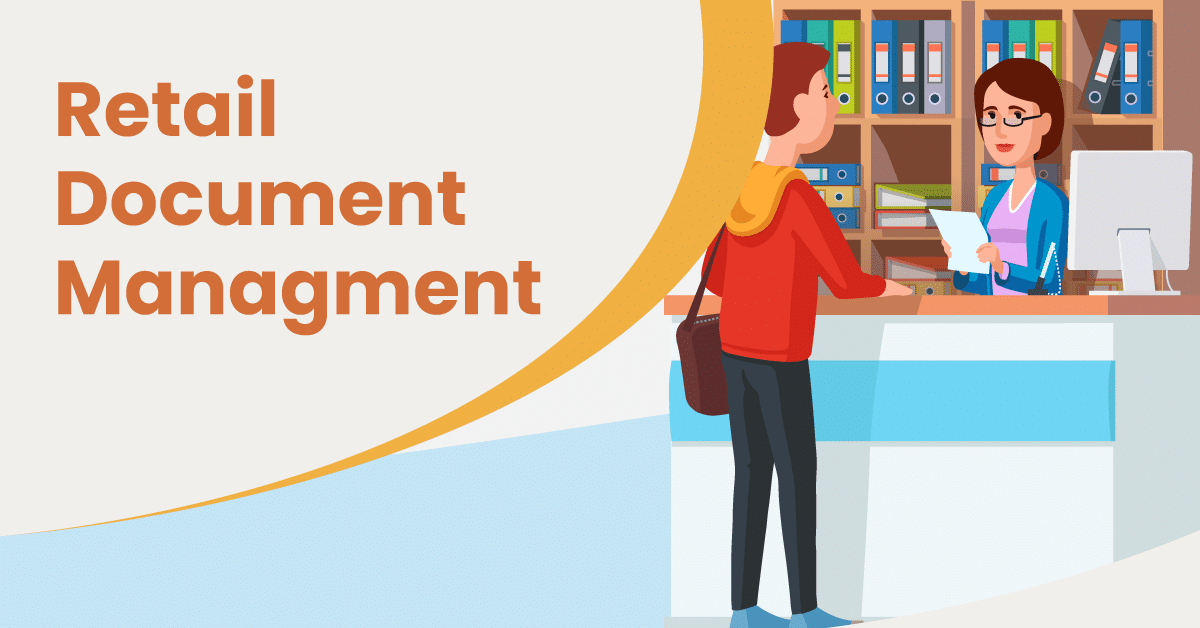Key Takeaways:
- Document management in retail is often shortened to DMS. It entails creating, storing, and tracking different documents digitally, such as receipts, purchase orders, contracts, consent forms, employee documents, and waivers.
- Retail document management can be used for a variety of purposes. Some of the most common include getting signatures, standardizing business practices, tracking product orders and sales receipts, and keeping the HR department organized and efficient.
- Document management systems have many benefits, including accuracy, reduced operating costs, assurance of compliance, protected documents, and centralized operations.
Retail, like most industries, has benefitted from various forms of technology. From automated inventory management and modern POS software to electronic receipts and advanced customer loyalty systems, retail tech has ushered in new ways for merchants to maximize efficiency, sales, profits, audience, and more.
Retail document management is just one more way that technology has made merchants’ lives easier and better organized. Gone are the days of thousands of paper documents in folders and files. And even though retailers still need various reports, sales receipts, contracts, waivers, and more, digital document management keeps everything secure and organized.
This blog will dive into what document management in retail is, how retailers can use it, and some of the benefits of doing so.
What is Document Management in Retail?
Sometimes referred to as Document Management Systems, or DMS, document management is a digital system used to store electronic documents. These documents might be used by merchants for any number of purposes – employee handbooks, HR forms, contracts, receipts, Department of Health procedures, client waiver forms, to name a few – and can be updated, tracked, and managed through cloud-based access.
A modern document management system means that users can edit/view/print/etc. any document at the same time. Users can also see different versions and edits, and these changes can be reversed or undone. All documents are edited in real-time as well through tools like a PDF editor, so merchants know they always have the most up-to-date version.
What Can Merchants Use Document Management For?
While document management might seem unnecessary for some businesses, there are a surprising number of ways that retailers and any type of merchant can use it. Below are several of the most common:
1. Get Signatures
This can apply to both your customers and your employees. And there are a whole lot of instances in which merchants need a signature. Nearly all merchants require signed receipts in at least some instances. Others, like theme parks and water parks, often require guests to sign waivers. Most need employees to sign handbooks, codes of conduct, company policies, disciplinary action, and contracts. And many retailers need suppliers to sign purchase orders, delivery confirmations, and much more.

Modern document management systems allow merchants to capture signatures easily and electronically so that it’s stored and kept secure for as long as you want to keep on file.
2. Keep Practices Standardized and Organized
The goal for most retail businesses is to expand. But one of the hardest parts about expanding is keeping your processes and procedures uniform across all locations.
Retail document management keeps these standardized, helping you expand more effortlessly. Whether it’s employee onboarding practices or receipt storage, there are countless ways this type of system will keep things running smoothly.
3. Track Orders and Receipts
Keeping track of every single purchase order, receipt, and other day-to-day paper trails can be a major headache. Document management can handle this, too. All orders and receipts are saved and stored in one central system, even if you have multiple locations. Users should be able to integrate with their retail POS as well.
4. Help Out Your HR Department
DMS also makes running a retail HR department much easier. Onboarding new staff members takes time and often comes with many forms needing signatures, contracts, non-competes, and other legal documents. Plus, this can track employee performance, including any formal write-ups or other important documentation.
Again, document management keeps all of this organized while also helping your team ensure that they’re crossing every T and dotting every I.
5 Benefits of Retail Document Management
Many retailers fail to invest in document management for a variety of reasons – it’s too expensive, the “old” way works fine, we aren’t big enough to need it – but it’s typically an investment that will pay off quickly for just about any operation.
Let’s take a quick look at some of the biggest benefits of DMS for merchants.
Stay More Accurate
First and foremost, document management will keep your records, receipts, and orders more organized. This, of course, improves efficiency, productivity, and operational proficiency. Stop losing documents and wasting time trying to find them.

Reduce Operating Costs
By improving your organization and accuracy, you’ll also reduce operating costs. Less wasted time, better tracking for instances of unemployment claims or hiring issues, and more square footage with freed-up storage space.
Stay Compliant
Merchants face stricter regulations with each passing year. There are more and more hoops to jump through in terms of various forms of compliance. Keeping all document management digital helps your HR department stay on top of every detail.
Keep Documents Protected
Keeping data secure and private is vital for all retailers. Digital document management that’s securely stored in the cloud reduces the risk of any theft. It also protects businesses in the event of fires or natural disasters.
Centralize Operations
Finally, a centralized system of operations helps retailers scale their business. Keep all documents in one system so that they’re easily accessible and editable no matter where in the world you are.
Integrate Document Management with Your POS
Keeping your document management integrated with your point of sale software makes things even easier. Track receipts, employee documentation, waivers, customer loyalty info, purchase orders, and so much more. Check out KORONA POS to learn more about how this can help make your business easier to run.











